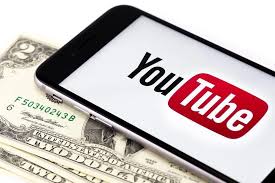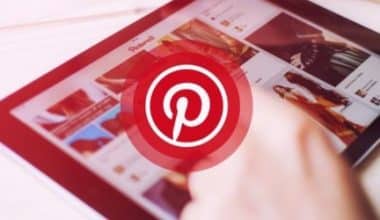Since social media platforms’ creation and widespread usage, how we interact with people has changed. However, concerns have been raised about its effects on society and mental health and how they play out in the long run. In this article, we will discuss the effects of social media on teens, mental health, relationships, and society generally. Shedding more light on the negative effects of excessive use of social media.
The question of whether or not the harmful effects of social media outweigh their positive effects in society is complex and up to individual interpretation. It depends on aspects such as how individuals in society utilize social media, how resilient they are mentally and emotionally, and how well they can differentiate between reliable and false sources of information.
On the bright side, it gives people the platform to voice their opinions, facilitates the fast exchange of information, allows people to communicate regardless of physical location, and even assists law enforcement agencies in apprehending and convicting criminals. However, the adverse effects of social media in society are widespread and cannot be ignored because of their magnitude. Issues about privacy, the proliferation of false information, cyberbullying, and the detrimental effects on mental health are frequently the focus of concerns.
There are multiple reasons why using social media can be bad for teens. The reasons include the following:
#1. The Issue of Cyberbullying
About 10% of teens have reported being bullied on social media, and many other users have been subjected to offensive comments. These platforms can become avenues for spreading hurtful rumours, lies, and abuse that can leave lasting emotional scars.
The spread of cyberbullying on social media platforms is because these platforms allow users to create anonymous profiles. Hence making it easier to engage in harmful behaviours without fear of immediate reprisal or identification.
Also, cyberbullies take advantage of the platform’s ability to spread information quickly to spread harmful content. Cyberbullying can occur across various platforms, including online forums, chat rooms, email, and gaming, increasing the opportunities for cyberbullying.
#2. Self-Absorption
When teens share endless selfies and all their innermost thoughts on social media, it can create unhealthy self-centeredness and distance them from real-life connections. It can lead to self-absorption, including creating an online image, external validation, impression management, comparison and competition, and self-referential thinking.
Users may spend excessive time comparing their lives to others, leading to self-absorption and a focus on self-promotion. Balancing online interactions with real-life experiences and relationships is crucial to mitigate self-absorption. Finding this balance can involve limiting online time and seeking validation from real-life accomplishments and relationships.
#3. The Feeling of Inadequacy Over Life or Appearance
The images viewed online can make you feel insecure about how you look or what’s happening in your life, leading to envy and dissatisfaction. Social media sites provide tools that allow teens to earn others’ approval for their appearance and the possibility to compare themselves to others. Body image concerns can arise from not getting approval from followers through likes
#4. Fear of Missing Out (FOMO) And Addiction
Online platforms can increase the feeling that others are having more fun or living better lives than you are. Which might impact your self-esteem, trigger anxiety, and fuel even more significant social media use. FOMO is a psychological phenomenon that drives internet addiction leading to a desire to stay connected with others’ online activities.
The fear of missing out can be worsened by constant notifications, leading to compulsive behaviours to maintain social connections. Understanding the role of FOMO in online usage and addiction is crucial for developing psychological strategies to maintain healthy relationships with social media.
#5. Issues with Sleep Patterns
Internet usage has been linked to sleep problems due to various factors, including blue light emission, fear of missing out (FOMO), constant notifications, pre-sleep activity, a coping mechanism for insomnia, and sleep displacement. Blue light interferes with melatonin production, making it harder to fall asleep.
To mitigate these effects, it is recommended that teens develop healthy social media habits, such as setting specific times, avoiding screens before bedtime, and turning off notifications during sleep hours.
#6. Spread of Misinformation
Many users mention the spreading of misinformation and made-up news as the main reason why they think social media have a primarily negative effect. Social media is a significant factor in spreading misinformation in society due to echo chambers, emotional contagion, platform engagement, misinformation and disinformation, user habits, and reward structures.
Social media acts as an echo chamber, amplifying and distorting information, making negative information more resistant to updating and triggering emotions like fear and anxiety. Platforms profit from user engagement, making it difficult to crack down on misinformation. Misinformation and disinformation can go viral due to information overload and limited attention spans.
User habits and reward structures also enable the spread of misinformation, with habitual users sharing more fake news than occasional or new users. To mitigate misinformation, teens should promote critical thinking, always fact-check, and be sceptical toward unverified information.
#7. Negative Impact on Real-Life Communication
Many people use social media instead of actual communication and in-person socializing, negatively impacting real-life interactions. As a result, interpersonal skills, face-to-face interaction, miscommunication, and creativity have been lost due to the veil between sender and receiver.
The increased communication speed has decreased information reliability, and using short messages can lead to misunderstandings. Informative skills and creativity have also been degraded, and people’s dependence on social media has decreased real-life social interactions. Language has also been compromised, with short versions not addressing grammar and syntax.
The relationship between social media usage and mental health challenges is complex, with multiple studies showing positive and negative impacts. However, the negative impacts of excessive social media use are well-documented. They include feelings of addiction, anxiety, depression, isolation, and fear of missing out (FOMO).
Research studies suggest a connection between social media and symptoms of anxiety and depression. One study found that people who used between 7 and 11 internet platforms were more likely to experience depression and anxiety than people who used between 0 and 2.
Another study tied social media use to disrupted and delayed sleep, essential for well-being and can contribute to adverse mental health effects, such as depression and memory loss.
However, social media also has positive effects on mental health. It provides a platform for self-expression, which is essential to mental health. Also, it allows people to share their skills, learn from others, and connect with people across the globe.
Social media has both positive and negative effects on personal relationships and communication. These effects depend on how it is used in the relationship.
Social media allows people to stay connected with each other easily. It eliminates distance barriers, making it possible to form connections. This is particularly beneficial for long-distance relationships or those struggling to align with each other’s availability. It also facilitates accessible communication through messages, video calls, and posts, helping to improve and accelerate the progress of relationships.
Furthermore, it is an excellent tool for learning about various aspects of relationships. It can help create awareness about setting boundaries, identifying unhealthy bonds, understanding concepts like gaslighting, and recognizing toxic relationships.
The reasons include:
Unrealistic Expectations
Social media can set unnecessary standards for beauty, love, and relationships. It can create a false image of love and relationships, leading to unrealistic expectations. Also, it fails to project that relationships have hardships and struggles. This is because people do not usually share those parts online.
Jealousy and Infidelity
The use of social media in relationships can lead to feelings of jealousy, unrealistic expectations, infidelity, and intimacy loss. Also, excessively using it might lead to questioning the authenticity of love and drain out intimacy in pursuit of validation.
Impact on Communication and In-person Time
Substituting online interactions for face-to-face communication may impact existing relationships and the ability to form new ones. Spending more time on social media can lead to less quality in-person time with loved ones and relationship dissatisfaction.
Comparison and Self-esteem
Social media can negatively affect self-esteem when individuals compare themselves to others based on social media accounts. Hence, leading to feelings of inadequacy and isolation, which may be associated with depressive symptoms.
Distraction and Compulsion
Social media can serve as a distraction from focusing on the interactions that nurture relationships. It can also become compulsive, leading to feelings of anxiety and jitteriness when not used.
Social media jealousy is a phenomenon that arises from the use of social media platforms like Facebook, Instagram, Twitter, etc. It can manifest in two primary forms: romantic jealousy and general envy of others’ lives.
Romantic jealousy on social media is characterized by insecurity and the fear of losing a valued relationship to a potential rival. Uncertain interactions between a partner and others online can stimulate this, leading to misunderstandings and fantasies. For instance, if we see our partner liking or commenting on someone else’s posts, we might feel threatened, even though the interaction might be completely innocent.
On the other hand, general social media jealousy arises from comparing one’s own life to the seemingly perfect lives of others as portrayed online. The images and posts shared by others can lead to feelings of envy or depression about one’s own life. This is because social media highlights the best moments in people’s lives. Hence, creating the illusion that everyone else lives a more exciting, successful, or happy life.
The most harmful social media platforms vary based on user behaviour, platform features, and context. Facebook, Tumblr, Instagram, TikTok, Periscope, and Whisper have been linked to harmful behaviours, such as body image issues, anxiety, and depression among teenagers. Standard features like ‘like’ buttons can also be harmful, as they promote validation and social comparison. The harm caused by these platforms is not solely due to the platforms themselves but also how users interact with them, with behaviours such as seeking validation, sharing too much personal information, and spending excessive time on these platforms being considered harmful.
Since the widespread growth and usage of social media, research has been ongoing to determine how much social media impacts our lives and its long-term effect on our mental health, physical health, and security issues. Even though past research has found a link between using social media and mental health problems like anxiety and depression, it is still unclear what the long-term effects of this behaviour will be.
Researchers have high interest in finding out how long-term use of social media, especially during a person’s developmental years, can affect their mental health. Finding possible risk factors and protective factors will help a lot with the development of effective treatments.
Also, concerns have been raised about how spending too much time in front of a screen and being too stationary while using social media can lead to sleep problems, eye strain, and muscle and joint problems. However, we need more studies to fully understand the links between social media and a person’s physical health.
Furthermore, with social media platforms becoming so common, people are becoming more worried about their privacy and the safety of their personal information saved online. People often share personal information on these sites, which can be used for many things. To protect the privacy rights of social media platform users, it is necessary to do a study on the possible effects of data breaches, identity theft, and targeted advertising.
Finally, social media platforms are designed to be exciting and addicting; it is essential to understand the psychological factors that lead to social media addiction. Researchers are looking into the links between online addiction and addiction to drugs. They want to learn more about how bad habits affect many parts of a person’s life.
Conclusion
Although there has been a lot of research on the harmful effects of social media, we still don’t know how deeply it affects both people and society. Social media and how people act have a complicated relationship that needs to be studied regularly to understand fully. However, individuals should be mindful of how they use the internet. They should ensure there is a balance. Hence, promoting digital well-being and responsible use of these online platforms.
Related Articles
- How Technology is Changing Our Life Today
- Mental Health Days: What It Means For Employees And Students
- WHY MENTAL HEALTH IS IMPORTANT Explained!
- Negative Effects of Social Media That Can Harm Your Life in 2023






